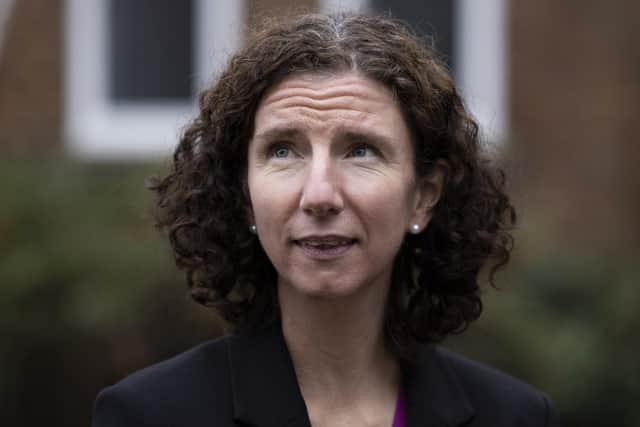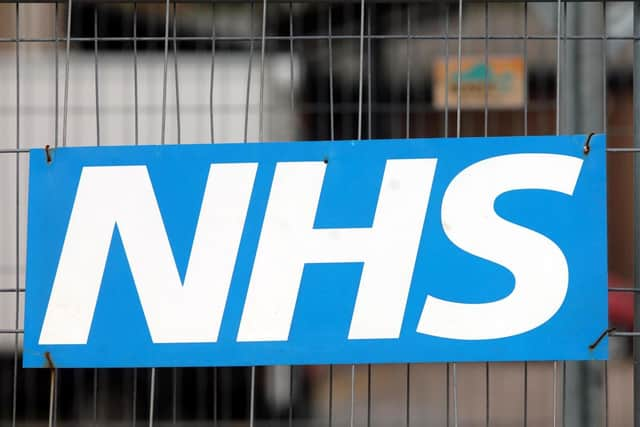Why the crisis in the NHS is particularly impacting women’s health - Anneliese Dodds
I’ve always felt inspired by the people working in the health service – from doctors and nurses to hospital porters and administrators - all of them part of a caring team during what can be the toughest of times.
Last year, for the first time, I felt that the NHS may not be able to provide support at a time of need.
Advertisement
Hide AdAdvertisement
Hide AdI witnessed the aftermath of a road accident, where a teenager was injured. I phoned for an ambulance - but couldn’t get through. After conferring with other bystanders, we worked out a different way for the teenage girl to get to hospital, with a local taxi taking her.


I had always assumed that it would be possible to get an ambulance to come at a time of emergency - but this time, it wasn’t guaranteed.
The girl was clearly in pain and it was awful to feel she wasn’t getting the help she clearly needed, as quickly as she needed.
I know that many people in Yorkshire will have similar stories to mine; and of course, everyone is affected by the crisis in our NHS. However, within this sorry picture, I’m particularly concerned about how women’s health is faring.
Advertisement
Hide AdAdvertisement
Hide AdBecause for all the anxiety I felt that day, I can only imagine how much worse it would be to be waiting for an urgent consultation following suspected breast cancer.


The sleepless nights, the anxiety, the impact it would have on your work life or relationships. Because of the crisis in our NHS, long waits for these referrals are all too common.
In fact, one in four women in England with suspected breast cancer are not being seen within the government’s two week target.
The idea that someone with suspected breast cancer can be left waiting for weeks on end for a consultation is heartbreaking. The fact that it is now commonplace is disgraceful.
Advertisement
Hide AdAdvertisement
Hide AdBut this is just the start of the many ways the government is failing women.
According to new analysis from the House of Commons Library, there are soaring waiting lists and missed targets in a number of key areas of women’s health in Yorkshire.
It is no exaggeration to say that this means that women in Yorkshire are waiting in pain and that potentially life-threatening conditions could be going undetected.
The crisis in GP appointments affects all of us – but we know that in Yorkshire and the North East there could be 136,000 women who are waiting over 28 days to see their GP.
Advertisement
Hide AdAdvertisement
Hide AdIn Yorkshire and the Humber, cervical screening rates stand at just 72 per cent, some way off the government’s 90 per cent target.
The impact of these delays in actually getting to diagnosis and treatment is not yet known – but we can reasonably assume that later diagnosis will result in worse outcomes for women who are found to have cancer, and in the worst case scenario, in more women dying.
In addition, there are over 76,000 women in Yorkshire and the North East on the gynaecology waiting list – up from 57,000 in 2021.
Over 3,000 women have been waiting over a whole year for treatment, often waiting in severe pain – and potentially with their conditions worsening.
Advertisement
Hide AdAdvertisement
Hide AdThe government is desperate to pass the buck for these failures. They’ll blame the pandemic. They’ll blame the strikes.
However, I’m afraid that women’s health was being failed even before 2020. The gynaecology waiting list has trebled in the last decade, and so have waiting times for treatment. There are no quick fixes to this situation, but we know that many of these delays are caused by staff shortages.
That is why Labour has announced it will launch the biggest expansion of medical training in history, to bring waiting lists down and make sure patients can be treated on time again.
We know that we need to achieve this while being a responsible steward of the nation’s finances and the UK economy. Our plan is fully costed, paid for by abolishing the so-called “non-dom” status which allows people who are living in the UK but have homes abroad to avoid paying tax.
Advertisement
Hide AdAdvertisement
Hide AdThe result of this will be doubling the number of medical school places to train 15,000 doctors per year, creating more than 10,000 more nursing and midwifery clinical training placements per year, doubling the number of district nurses qualifying every year, and training 5,000 new health visitors.
Behind these figures are real women, often waiting for weeks and sometimes months in pain and anxiety, in Yorkshire and in other parts of the country.
The government must act now to prioritise and protect women’s health, and prevent a women’s health emergency.
Anneliese Dodds is Shadow Secretary of State for Women and Equalities.